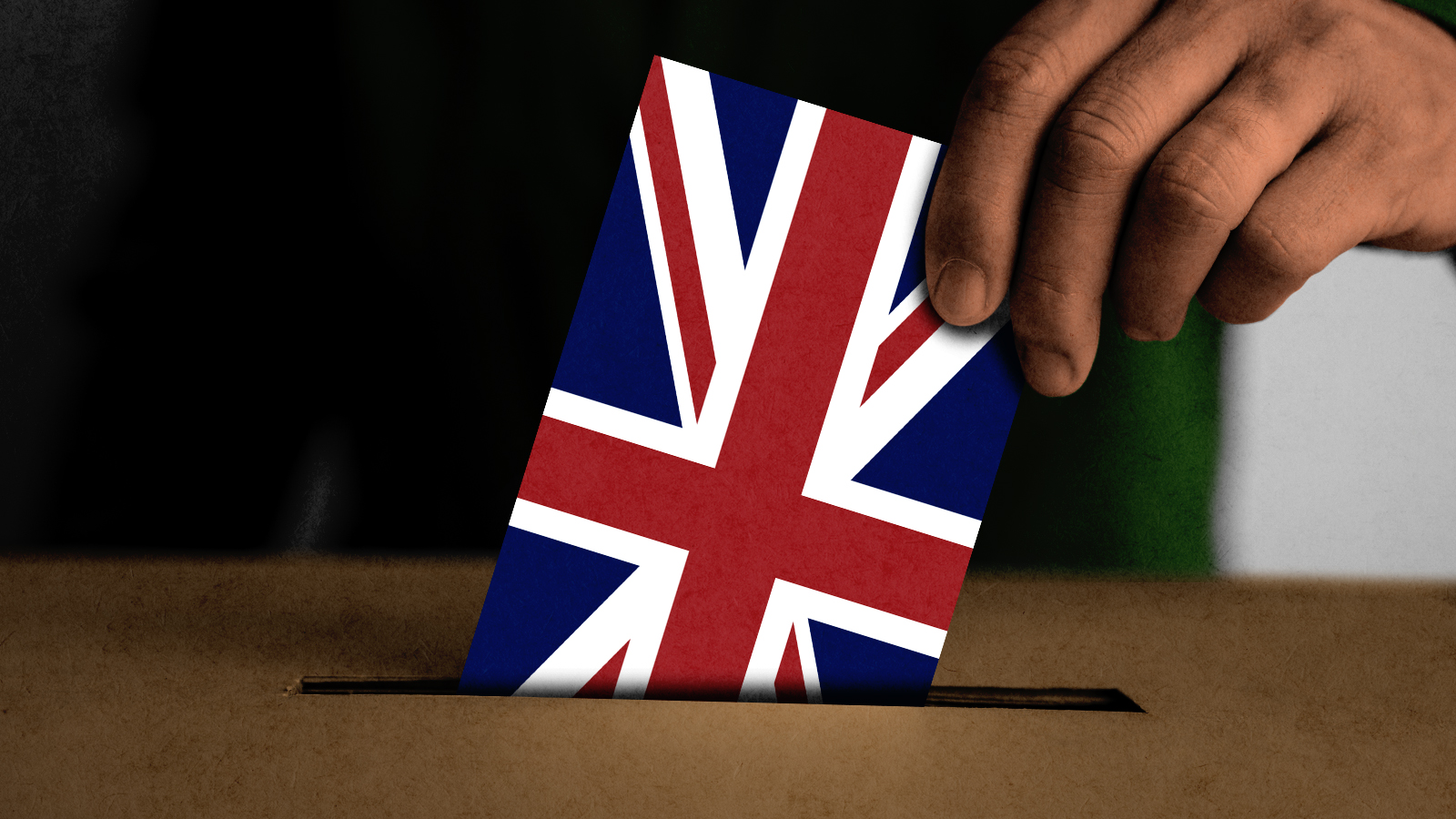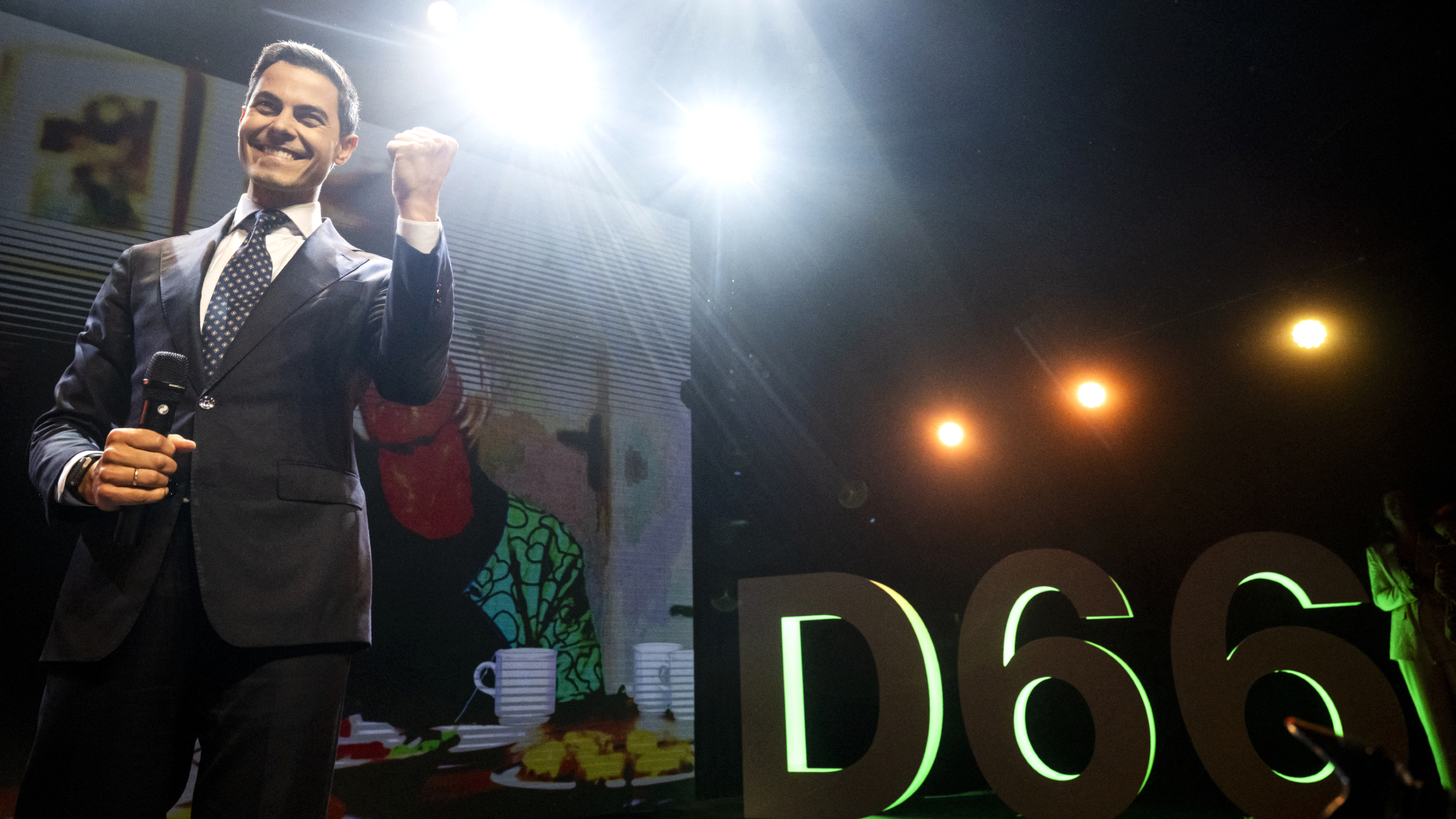Should the U.K. have a general election?
The sharpest opinions on the debate from around the web


A free daily email with the biggest news stories of the day – and the best features from TheWeek.com
You are now subscribed
Your newsletter sign-up was successful
Liz Truss resigned as Britain's prime minister last Thursday after wreaking havoc on the economy with her failed fiscal plans. Her 45-day term became the record-shortest in Britain's history and has left the U.K. scrambling to appoint a new PM. The Conservative Party has announced that a leadership decision will be made by Oct. 28 between the candidates in the ring (notably not including former disgraced Prime Minister Boris Johnson). Britain's new leader will be 42-year-old Rishi Sunak, who'll become the fifth Conservative Party prime minister in just over six years and the third just within this parliamentary term, according to CNN.
The ongoing political turmoil has resulted in heavy criticism of the Conservatives, also known as the Tories, as well as a call for an immediate general election, especially by those in the opposition party. (The U.K.'s next general election is not due until at least 2024, following Boris Johnson's victory in 2019). Some have also viewed Truss' failure as a failure of democracy. Should Britain hold an immediate general election, and what do the recent failures say about the country?
Britain desperately needs a general election
Britain's Conservative Party has been facing immense pressure to hold a general election, with some arguing that it is necessary. John Cassidy, a columnist at the New Yorker, wrote that despite the Tories holding the majority in the House of Commons, "common sense, basic decency, and Britain's reputation as a healthy democracy" demand an immediate general election.
The Week
Escape your echo chamber. Get the facts behind the news, plus analysis from multiple perspectives.

Sign up for The Week's Free Newsletters
From our morning news briefing to a weekly Good News Newsletter, get the best of The Week delivered directly to your inbox.
From our morning news briefing to a weekly Good News Newsletter, get the best of The Week delivered directly to your inbox.
He's not the only one to feel that way. An official Parliament petition has gathered almost 800,000 signatures calling for an immediate general election due to the chaos. Additionally, during Truss' resignation speech, protesters in the back could be heard shouting "general election now" — a clear call for change.
The leader of the opposition Labour Party, Keir Starmer, has insisted that "the British public deserves a proper say on the country's future." Cassidy concurred with the statement, writing, "Who could disagree that it's time for the voters to be heard?"
The Tories are in their flop era
One criticism that has strongly emerged from the fiasco is the recognition of the failures of the modern Conservative Party. While the party was once renowned for its credibility, including its legendary leaders like Winston Churchill and Margaret Thatcher, guest writer Peter Oborne argued in The New York Times that now "the Conservatives are synonymous with chaos."
Overall, many are tired of the party's antics, with Starmer also saying that Britain cannot afford "another experiment at the top of the Tory party." According to polls, support for the Conservatives is at its lowest level in history, at a mere 14 percent. The opposition Labour Party has seen its support skyrocket, currently hovering around 53 percent of the vote by comparison. Data by Electoral Calculus predicts that if elections were to be held today, the Labour Party would likely gain 304 seats while the Tories would lose 317 seats — putting the probability of a Labour majority at almost 100 percent.
A free daily email with the biggest news stories of the day – and the best features from TheWeek.com
In his column, Oborne describes how Truss' failure has made Britain a "global laughingstock" and the "Conservative Party must collectively take responsibility" for choosing her even though "she was obviously not up to the job."
"Their obstinacy is ensuring the ruination of Britain."
A failure of democracy
While many are calling for a general election, there are a number of reasons why it likely won't happen. U.K. general elections are usually held once every five years, meaning the next one is due before Jan. 2025, CNN reports. Since poll numbers for the Tories are so low, they are likely not eager to hold an election that they would almost certainly lose.
This unfortunate political reality has caused many to look upon the current situation as a failure of democracy. A member of the Conservative Party in Parliament, Charles Walker, said in reference to his own party that he's "had enough of talentless people putting their tick in the right box, not because it's in the national interest but because it's in their own personal interest."
Since Boris Johnson and other candidates have dropped out of the running, 42-year-old Rishi Sunak is set to lead the country. Before that recent turn of events, though, Johnson had appeared to be seriously in consideration, which one person said "feels like such a letdown of democracy." Rafael Behr, a columnist for The Guardian, wrote that the Conservative Party "[harbors] in its ranks the idolatrous sect that worships character traits exactly opposite to the ones required for sound government" in response to the possibility of Johnson being given another chance as prime minister.
With Sunak's victory, there is still an air of doubt after the two prime minister failures. Laura Beer wrote in a CNN opinion piece, "Changing leaders twice in the course of a parliamentary term without consulting the British electorate is the political equivalent of whacking your brother just because he annoyed you."
She continued saying that not giving the electorate the chance to voice their opinions "would risk further eroding faith in Britain's democratic process, at a time when democracy is under significant threat around the globe."
Devika Rao has worked as a staff writer at The Week since 2022, covering science, the environment, climate and business. She previously worked as a policy associate for a nonprofit organization advocating for environmental action from a business perspective.
-
 Switzerland could vote to cap its population
Switzerland could vote to cap its populationUnder the Radar Swiss People’s Party proposes referendum on radical anti-immigration measure to limit residents to 10 million
-
 Political cartoons for February 15
Political cartoons for February 15Cartoons Sunday's political cartoons include political ventriloquism, Europe in the middle, and more
-
 The broken water companies failing England and Wales
The broken water companies failing England and WalesExplainer With rising bills, deteriorating river health and a lack of investment, regulators face an uphill battle to stabilise the industry
-
 Japan’s Takaichi cements power with snap election win
Japan’s Takaichi cements power with snap election winSpeed Read President Donald Trump congratulated the conservative prime minister
-
 How realistic is the Democratic plan to retake the Senate this year?
How realistic is the Democratic plan to retake the Senate this year?TODAY’S BIG QUESTION Schumer is growing bullish on his party’s odds in November — is it typical partisan optimism, or something more?
-
 The billionaires’ wealth tax: a catastrophe for California?
The billionaires’ wealth tax: a catastrophe for California?Talking Point Peter Thiel and Larry Page preparing to change state residency
-
 Bari Weiss’ ‘60 Minutes’ scandal is about more than one report
Bari Weiss’ ‘60 Minutes’ scandal is about more than one reportIN THE SPOTLIGHT By blocking an approved segment on a controversial prison holding US deportees in El Salvador, the editor-in-chief of CBS News has become the main story
-
 Asylum hotels: everything you need to know
Asylum hotels: everything you need to knowThe Explainer Using hotels to house asylum seekers has proved extremely unpopular. Why, and what can the government do about it?
-
 Has Zohran Mamdani shown the Democrats how to win again?
Has Zohran Mamdani shown the Democrats how to win again?Today’s Big Question New York City mayoral election touted as victory for left-wing populists but moderate centrist wins elsewhere present more complex path for Democratic Party
-
 Dutch center-left rises in election as far-right falls
Dutch center-left rises in election as far-right fallsSpeed Read The country’s other parties have ruled against forming a coalition
-
 Millions turn out for anti-Trump ‘No Kings’ rallies
Millions turn out for anti-Trump ‘No Kings’ ralliesSpeed Read An estimated 7 million people participated, 2 million more than at the first ‘No Kings’ protest in June
